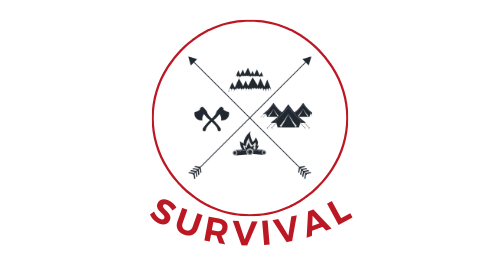In the face of a disaster, managing stress becomes crucial for both immediate and long-term recovery. This article explores the psychological coping strategies that can help you navigate the challenging aftermath of a disaster. By understanding these strategies, you can better equip yourself to cope with the stressors that arise during and after a disaster, eventually leading to a healthier and more resilient mindset. So, let’s delve into the various coping techniques available to support your well-being during these trying times.
Psychological Coping Strategies During a Disaster
Seeking Social Support
During a disaster, it is crucial to seek social support as a way to cope with the stress and anxiety that can arise. Surrounding yourself with loved ones, friends, or community members who are experiencing the same situation can provide a sense of camaraderie and understanding. Talking to others about your feelings and sharing your experiences can be incredibly cathartic. Additionally, reaching out to professional counselors, support groups, or helplines can offer a safe space to express your emotions and receive guidance.
Maintaining a Routine
When everything around you feels chaotic and uncertain, maintaining a daily routine can be incredibly grounding. By sticking to a familiar schedule, such as waking up at the same time, incorporating regular meals, and engaging in activities that you enjoy, you can regain a sense of normalcy amidst the chaos. This consistency can provide a comforting structure and stability in your life, helping to reduce feelings of stress and overwhelm.
Practicing Relaxation Techniques
Utilizing relaxation techniques can act as a powerful tool for managing stress during a disaster. Deep breathing exercises, meditation, and mindfulness can help calm the mind and relax the body. These techniques can be practiced in moments of heightened stress or as part of a daily self-care routine. Engaging in activities such as yoga, tai chi, or progressive muscle relaxation can also help alleviate tension and promote a sense of calm amidst the chaos.
Focusing on Positive Thinking
Maintaining a positive mindset is crucial when coping with a disaster. While it may feel challenging, focusing on the positive aspects of your life and the situation can help shift your perspective and reduce anxiety. Practicing gratitude by noting the things you are thankful for can bring a renewed sense of hope and resilience. It’s important to remember that a positive mindset does not mean dismissing or ignoring the difficulties you may be facing, but rather acknowledging that there are still elements of positivity to be found.
Engaging in Physical Activity
Physical activity plays a crucial role in managing stress during a disaster. Engaging in regular exercise can release endorphins, which are natural mood enhancers that promote a sense of well-being. Whether it’s going for a walk, doing home workouts, or practicing yoga, moving your body can help reduce anxiety, improve sleep, and boost overall mental health. Even if you are unable to engage in your usual exercise routine due to the disaster, finding creative ways to stay active, such as dancing or stretching, can still provide benefits.
Psychological Coping Strategies After a Disaster
Allowing Time for Emotional Healing
After experiencing a disaster, it is important to acknowledge that emotional healing takes time. Allow yourself to grieve, process your emotions, and work through any trauma that may have occurred. Healing is not a linear process, and it is normal to have good days and bad days. Be patient with yourself, and remember that healing looks different for everyone.
Processing and Acknowledging Feelings
It is essential to process and acknowledge your feelings after a disaster. This may involve talking to a trusted friend or family member, joining a support group, seeking therapy, or using creative outlets such as writing or art to express your emotions. By giving yourself permission to feel and process your emotions, you can begin to heal and move forward.
Seeking Professional Help
If you find that your emotions are overwhelming or interfering with your daily life, it may be beneficial to seek professional help. Mental health professionals, such as therapists or counselors, can provide the necessary support and guidance to navigate the challenges you may be facing. They can offer strategies and techniques tailored to your specific needs, helping you build resilience and cope effectively with the aftermath of the disaster.
Engaging in Self-Care Activities
Engaging in self-care activities is essential for your overall well-being, especially after a disaster. Taking time to prioritize your needs and engage in activities that bring you joy and relaxation can help restore your mental and emotional equilibrium. This may include practicing self-compassion, engaging in hobbies, spending time in nature, or pampering yourself with a hot bath or a good book. By taking care of yourself, you are better equipped to cope with the challenges that lie ahead.
Planning for the Future
Although it may feel daunting, planning for the future can provide a sense of purpose and direction after a disaster. Setting goals and creating a plan can help you regain control and restore hope for the future. Whether it’s creating an emergency preparedness plan, setting personal goals, or focusing on rebuilding your life, having a vision for the future can create a sense of optimism and motivation. Remember to take small steps and celebrate each achievement along the way.
In conclusion, managing stress during and after a disaster requires psychological coping strategies that address both the immediate and long-term effects of the traumatic event. Seeking social support, maintaining a routine, practicing relaxation techniques, focusing on positive thinking, and engaging in physical activity are invaluable tools for coping during a disaster. Similarly, allowing time for emotional healing, processing and acknowledging feelings, seeking professional help, engaging in self-care activities, and planning for the future are vital strategies for coping after a disaster. By incorporating these strategies into your life, you can foster resilience and navigate the challenges of a disaster with strength and positivity.
